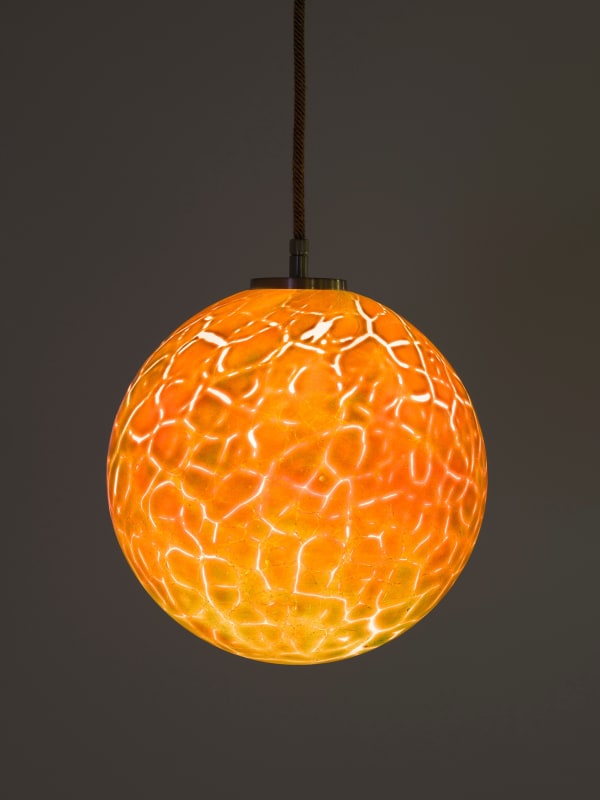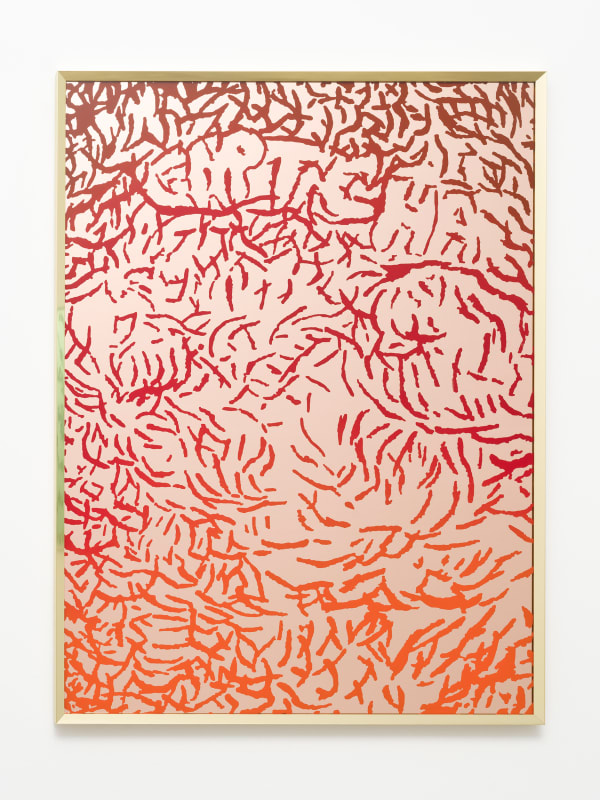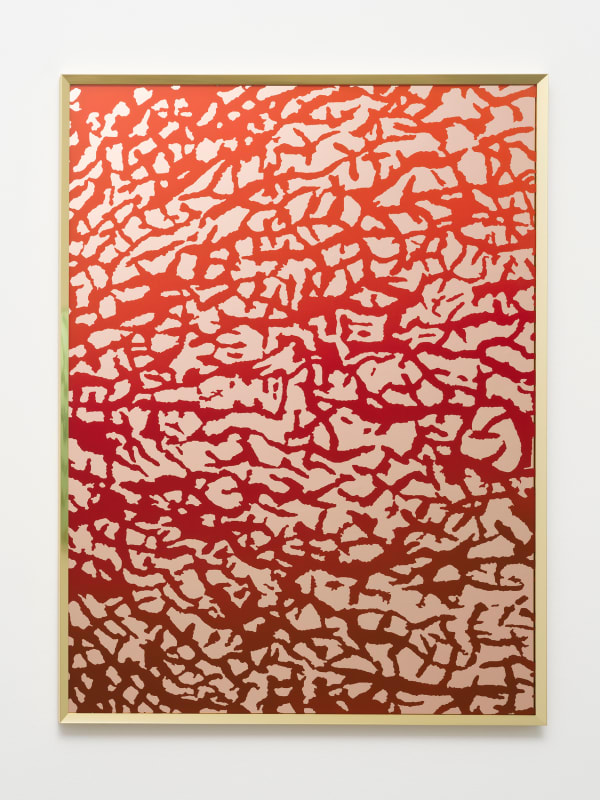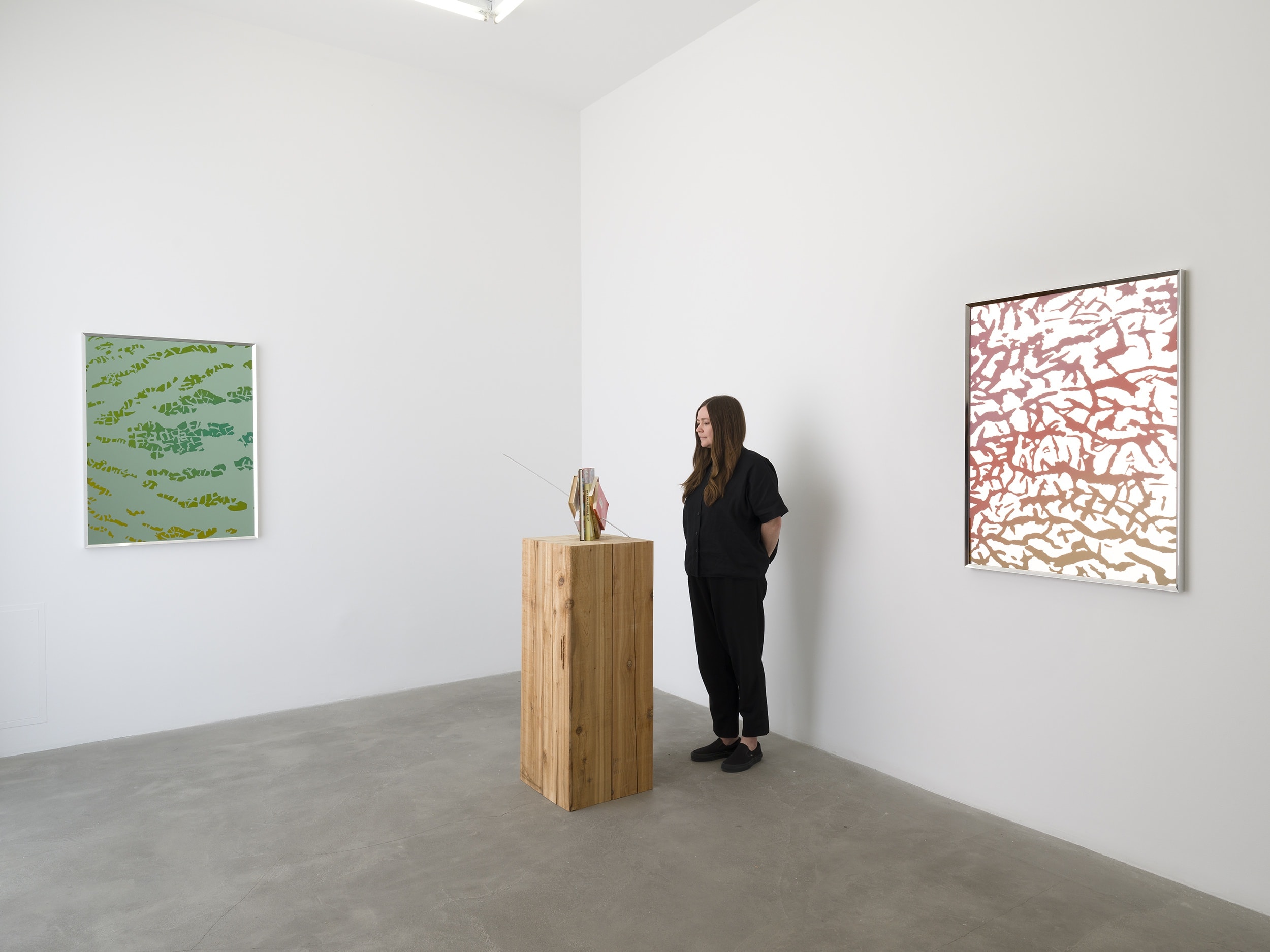Hang Don’t Cut presents a taxonomy of unique glass blown lamps (the Slavic etymology of melon stems from the verb дыть or "to blow”), each a nod to a particular species of melons of Central Asia, in particular in Uzbekistan and Xinjiang. The melons represent repositories of knowledge, as vectors of writing, as well as agencies of resource extraction. Considered a rare delicacy, the winter melon is carefully stored in warehouses (ковунхане) to ripen late, amongst the last fruit to do so as the first frosts arrive.The melon is coveted throughout Eurasia as an exceptional, almost miraculous product of nature: a luscious, sugary yield within an otherwise increasingly barren season and landscape.










The legend says that the melon originally grew only in the Garden of Eden. One day the Almighty sent it as a gift to the people, having previously written letters with a message on it. The presence of tiny cracks on the ripe melon caught the attention of the locals, as they appeared to be reminiscent of Arabic script. The pattern is never repeated, so with each melon, the people were not only gifted a treat, but new knowledge. Unfortunately, the people could not decipher the melons’ message.











Mirror works on the surrounding walls feature a ‘captcha' camouflaged within the texture of a melon and in different alphabets (Russian Cyrillic, Kazakh Cyrillic, Latin): a nod to the distinction between human and artificial intelligence while a new range of merch explores the discourse around melons, from cosmology to commerce.















In the reading room, in addition to a selection of books from the artists' archive, posters and streetwear spotlight the artists’ commitment to print and its democratic, accessible nature. Riverbed (2017) offers communal seating with a selection of the artists’ publications. A vernacular structure found at teahouses, roadside kiosks, shrines, entrances to mosques, and restaurants across Iran, the Caucasus, and Central Asia, Riverbed accommodates a group of roughly four or five people without the unfortunate and unspoken delineation of individual space dictated by the usual chair. Friends, families, and colleagues sit, smoke shisha, sip tea, eat lunch, take naps, and create – however momentarily – a sense of public space, all the more remarkable in countries where public space is circumscribed. Slavs and Tatars have published a dozen books, ranging in subject matter from satire in the Muslim world to language politics and the relationship between Iran and Poland from the 17th century to the present. Their publications have been translated into German, Chinese, Polish, Czech, Portuguese, and Sinhalese and reviewed in major publications such as The Guardian, The New Yorker, Libération, and The New York Review of Books. Лук Бук (Look Book), a catalogue raisonné of their 15 years of print work, has recently been published by Distanz Verlag.

Soft Power (2023) delves into the symbolic representation of a door and serves as a threshold in the gallery space, inviting visitors to enter the main part of the exhibition through a carpeted doorway. In the back room, a pair of praying hands, from tufted wool, face upwards as an invocation: to the divine nature of melons and the capture of resources and souls they represent.


